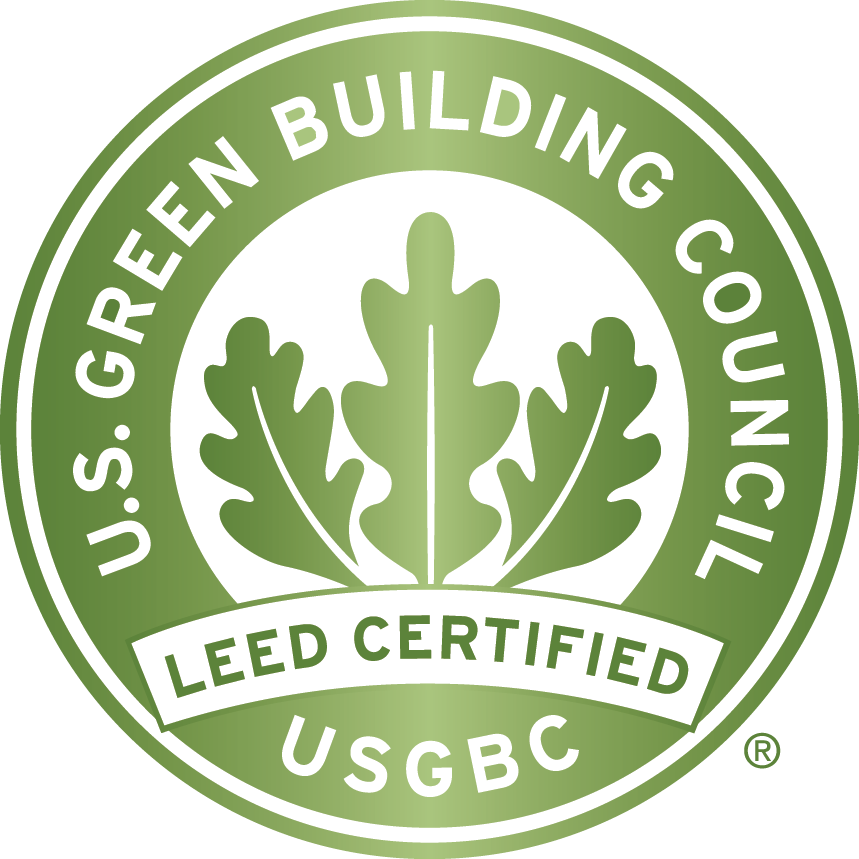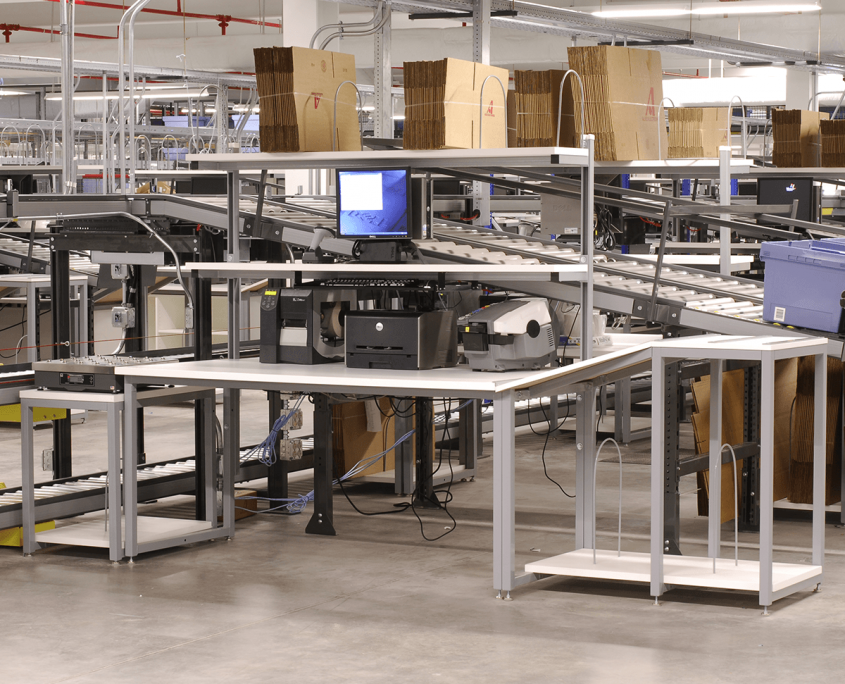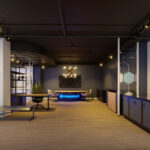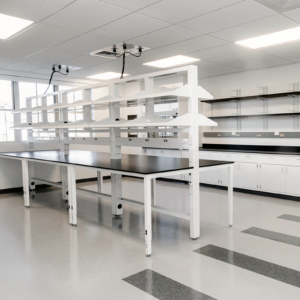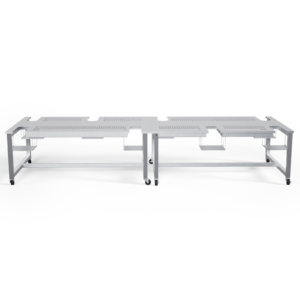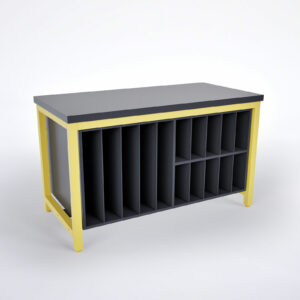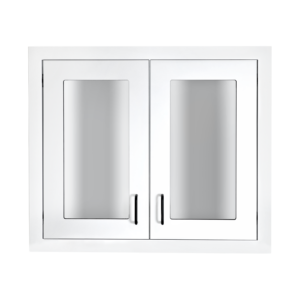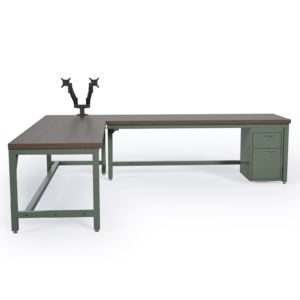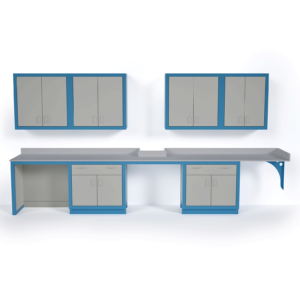As the peak of summer approaches and outside temperatures climb above 100F at our factory headquarters here in Austin, Texas, we have energy conservation and sustainable business practices on our minds. We’re not alone. It’s fair to say that nearly all our large enterprise customers are investigating ways to make their businesses more environmentally friendly. Many of our clients currently renovating existing buildings or undertaking new construction are also seeking LEED-certification for their real estate development projects.
U.S. Green Building Council’s LEED Certifications Can Influence the Selection of Furnishings Throughout a Facility
LEED, which stands for Leadership in Energy and Environmental Design, has expanded its scope considerably since it was first introduced by the U.S. Green Building Council back in 1993. Now in its third revision, LEED has branched out into nine different rating systems for sustainable green practices across the Architecture Engineering and Construction (AEC) and Facilities Management (FM) sectors. LEED rating systems range from standards for commercial construction, such as LEED for New Construction, LEED Core & Shell, and LEED for Healthcare, to the LEED for Home standards established for residential design and construction. In the third edition, LEED 2009, up to 100 points can be awarded to certify a project is worthy of the LEED designation, with the highly coveted Platinum level requiring at least 80 award points. In complex construction projects, each point can be hard fought to achieve, thus even the selection of technical furniture, such as earth-friendly modular work bench, work table and cabinet designs from Formaspace, can influence the outcome.
Formaspace Engages in Sustainable Business Practices in the Manufacture of All of our Custom Furniture
Formaspace sources all our raw materials for our workbenches and work tables, like steel and specialty hardware, via a local, American-based supply-chain rather than relying on overseas sources. This not only reduces transportation costs but reduces emissions released into the environment, which is also considered in the LEED certification process. We employ careful, efficient use of raw materials at the Formaspace factory. And we employ an extensive recycling program to reuse or re-purpose any unused materials. For example, any excess steel is recycled, while scrap material from the production line is re-purposed to create custom shipping crates for our workbench and work table technical furniture. Energy conservation and streamlined operational measures play a big part in our sustainable business efforts. We have insulated our factory extensively to reduce our cooling and heating requirements. We replaced inefficient air-compressor driven tools with precision rotary screw units for significant energy savings when fabricating our work bench and work tables. And we use diffusers to achieve 80% natural lighting within the facility for reduced energy consumption.
Formaspace’s Custom Furniture Can Help You Meet LEED Project Challenges
Flexible modular furniture solutions from Formaspace are often specified to help you earn LEED credits in new construction or when renovating an existing building. These modular units, including steel cabinets, industrial tables and industrial workbenches, offer rapid reconfiguration if your space planning needs change. For example, Formaspace modular furniture can be disassembled and re-assembled using basic tools, with essentially zero waste, unlike traditional casework furniture offerings. As we’ll see below, the ability to reconfigure the layout of your floor plans during renovations or even transport modular furniture to a new site without incurring any solid waste disposal can help secure important LEED credits.
Formaspace Workbenches are Commonly Specified by LEED Accredited Professionals
Formaspace is an active member of the U.S. Green Building Council, as are many of our customers. For example, in the healthcare sector, we are supplying J&J Worldwide Services with a large order of laboratory workbench and work table furniture in support of their construction of the Department of Defense’s new Food Safety and Diagnostics Laboratory (FADL) at Fort Sam Houston, in San Antonio, Texas. J&J employs LEED Accredited Professionals within their design and construction teams to promote innovative operational sustainability, reduce usage of scarce resources like water and energy, limit the need for solid waste disposal and improve indoor air/environmental quality.
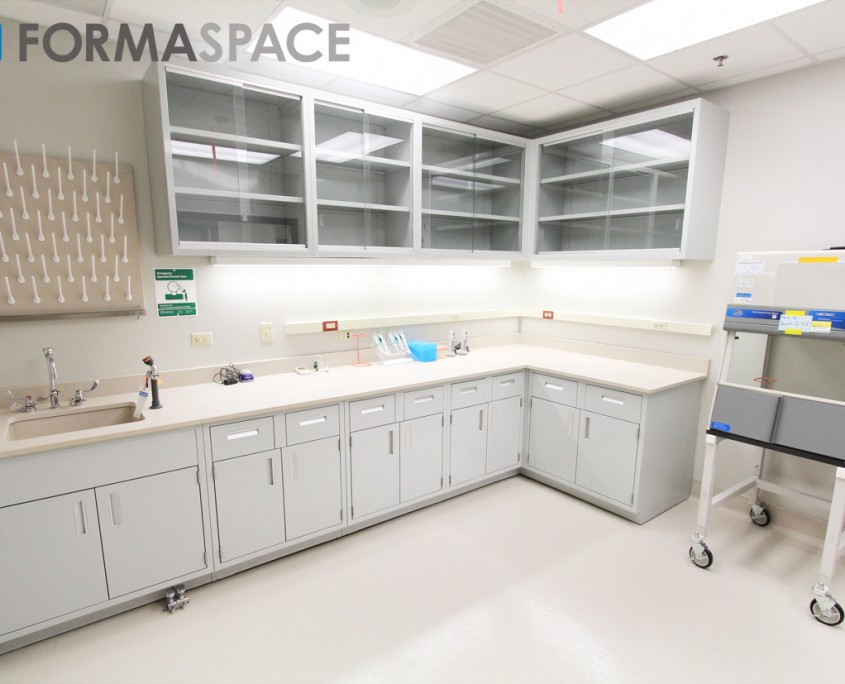
Let’s Step Through a Typical LEED Scenario for Sourcing Sustainable Furniture During the Renovation of an Existing Building
As this scenario is for a renovation of a facility that’s already built, an LEED Accredited Professional would reference the LEED for Existing Buildings: Operations & Maintenance rating system. In this case, the applicable LEED credit for purchasing sustainable furniture, like modular cabinets, industrial tables and industrial workbenches, is Materials and Resources (MR) Credit 2.2. This credit is intended to encourage a reduction of adverse air quality and environmental impacts during the operational and maintenance life cycle of the facility. An MR Credit 2.2. can be earned via several alternative criteria, or ‘pathways’, including purchasing furniture that either incorporates high levels of post-consumer or post-industrial recycled material, utilizes significant portions of salvaged materials or is constructed from a supply of rapidly renewable materials. Another pathway for earning this LEED credit is by purchasing furniture that is manufactured and shipped locally. Depending on the type of furniture designs selected, many Formaspace technical furniture offerings may help you qualify for this LEED credit.
How Does the Original Choice of Furniture Affect LEED Certification During Future Renovations?
When retrofitting or renovating an existing building, a LEED Accredited Professional will want to consider the LEED credit implications carefully. Relevant LEED 2009 credits include:
- MR Credit 3: Sustainable Purchasing—Facility Alterations and Additions
- MR Credit 8: Solid Waste Management—Durable Goods
- MR Credit 9: Solid Waste Management—Facility Alterations and Additions
The primary motivation behind this range of credits is to divert potential solid waste debris away from landfills or incinerators during renovation or retrofit. Many traditional furniture systems, such as classic casework cabinets, cannot be moved easily and may require walls and other construction elements to be removed, and thus potentially end up in landfills. Here is where the selection of modular furniture during the original construction phase shines. As the name implies, Formaspace modular furniture, such as industrial workbenches, steel cabinets and industrial tables, can be fully disassembled and moved within your facility as your needs change. LEED Accredited Professionals will want to quantify and document how 100% recyclable modular furniture eliminates the need to dispose of construction/demolition debris into our landfills or incineration facilities.
Are There Additional Opportunities for Accruing LEED Credits When Purchasing Custom Furniture?
Yes. For existing facilities, LEED offers credit for exceptional environmental protection or operational efficiencies. Here are the relevant ‘bonus credits’ for innovation in operations, exemplary performance, or conducting pilot programs found in LEED for Existing Buildings: Operations & Maintenance:
- IO Credit 1: Innovation in Operations -or- Exemplary Performance -or- Pilot Project
- IO Credit 3: Documenting Sustainable Building Cost Impacts
There are also entire sets of LEED credits specific to new construction projects. You will want to consult with a LEED Accredited Professional to discuss standard LEED credits as well as LEED bonus points for new construction type projects, including credits for Innovation in Design and LEED-selected categories established for specific geographic regions. Whether you are building a new facility, or retrofitting and renovating an existing facility, Formaspace is your custom fabrication partner who can bring your furniture ideas to life. Whether you are looking for modular furniture, classic casework furniture or you have a new, innovative custom solution in mind, we stand ready to build your furniture at our factory in Austin, Texas. Contact us today!


